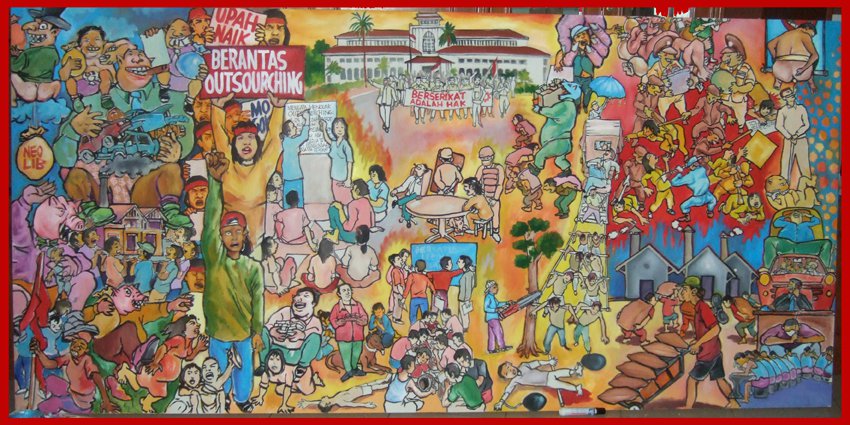 |
| Sarinah, Perempuan Mahardhika & KPRM PRD member |
Jakarta Post - December 10, 2010
Andi Hajramurni and Ruslan Sangadji, Makassar/Palu -- Some student rallies
to mark International Anti-Corruption Day on Thursday in a number of big cities throughout country turned ugly.
Rallies ended in chaos in Makassar, South Sulawesi; Palu, Central Sulawesi, and Kefamenanu, East Nusa Tenggara, where protesters were involved in violent clashes with police officers.
In Makassar, a clash took place along the 200-meter distance between the South Sulawesi governor's office and the campus of Indonesian Muslim University.
Andi Hajramurni and Ruslan Sangadji, Makassar/Palu -- Some student rallies
to mark International Anti-Corruption Day on Thursday in a number of big cities throughout country turned ugly.
Rallies ended in chaos in Makassar, South Sulawesi; Palu, Central Sulawesi, and Kefamenanu, East Nusa Tenggara, where protesters were involved in violent clashes with police officers.
In Makassar, a clash took place along the 200-meter distance between the South Sulawesi governor's office and the campus of Indonesian Muslim University.




